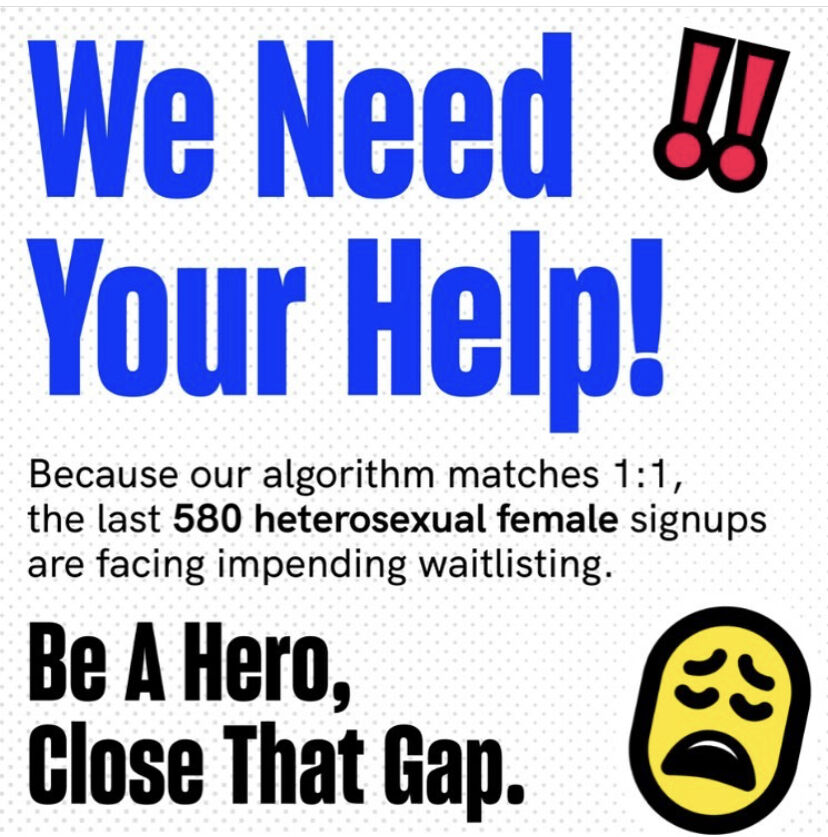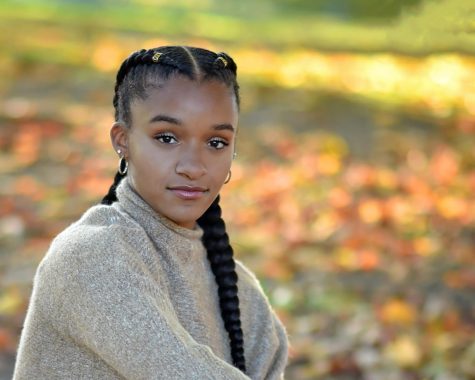Villanova Marriage Pact Results
Courtesy of Villanova Marriage Pact’s Instagram
The Marriage Pact advertised the need for more male sign-ups.
February 24, 2021
On Tuesday, Feb. 16, students anxiously checked their emails throughout the day as they awaited the arrival of results from the Villanova Marriage Pact. The Marriage Pact is a program started by Stanford students in which university students take a compatibility quiz that uses an algorithm to match them with another student who could become a romantic partner or a new friend.
Later that night, teasers in the form of the match’s initials were sent a few hours before the actual results came out. The team of the Villanova Marriage Pact includes sophomore Megan Gaughan, sophomore Will McKeon and sophomore Grace Manchester. Theythought that 2021 would be a great time for Villanova to hop on the Marriage Pact trend, being that it is so difficult to meet people in the midst of a pandemic. The trio was targeting all University students, but mostly freshman.
“Going outside of your circle freshman year, especially with COVID, is nearly impossible,” Manchester said. “My biggest goal was not so much romantic matches, but specifically for freshmen to meet someone outside their circle.”
The three sophomores responsible for the Marriage Pact craze at the University were shocked at how well it was received.
“The fact that so many people cared was really exciting,” Gaughan said.
Their primary job for this project was marketing and advertising to get as many students as possible to fill out the pact. One of the biggest challenges they faced, according to McKeon, was social media campaigning.
“It’s a lot harder than it seems,” he said jokingly.
McKeon saw the biggest challenge as getting the male student population to fill out the Pact.
“Convincing guys to sign up for something called the ‘Marriage Pact’ was not the easiest thing in the world,” he said.
The beginning of the Marriage Pact started with the disclaimer, “We can’t promise you a match made in heaven, but we can promise a match made via groundbreaking algorithms and a little linear algebra. Swoon!”
The pact swept the undergraduate schools by storm. The Villanova Marriage Pact team recorded about 50% participation among undergraduates, which equates to around 3,500 people who filled out the pact. The Pact is still the buzz around campus, as students have been very excited about receiving their matches.
“I was more excited than nervous awaiting my match,” freshman Kylie Horan said. “My match and I actually had a very high compatibility, so we’re going to meet up and get to know each other. I think the Marriage Pact may actually forge some great connections, romantic or otherwise, in such an isolating time.”
Like Horan, many students were thrilled with their high compatibility matches, but many others were let down. Freshmen Kendra Lewis and Catherine Messier received extremely low compatibility matches. Messier and her match had 3% compatibility, and Lewis and hers had 21%.
“Seeing my friends with matches in the 99th percentile, I can’t help feeling like I missed out somehow,” Lewis said.
“I didn’t expect to find my soulmate or anything, but I was definitely disappointed,” Messier said. “I’m hoping they do a rematch in years to come.”
Although many students were anxiously awaiting the release of the results, many of them, especially the young women who filled it out, were not sure what type of match they should expect, due to a much higher number of female participants.
“The gender disparity was a bit anxiety inducing though, as I was not sure if I would get a romantic match or a friend match due to a lack of male submissions,” Horan said.
The Marriage Pact team says there were around 500 more girls who filled out the pact, but the algorithm was able to match everyone, even if it was just as a friend match. Even though everyone was matched, many were disappointed with their results. Freshman Sadia Decastro received an “optimal friend match.” Decastro knew she was on the waiting list since she filled the pact out after it started keeping a waiting list. However, she received initials when the teasers were sent out.
“I was shocked and pleasantly surprised when I received an email that gave me the initials of my match,” Decastro said. “Shortly after, the initials changed, and I was a bit confused. It was a letdown when I found out that the second initials were for an optimal friend match. I wish they would’ve just told me that I had no match from the start.”
Although the results faced some negative backlash, the Marriage Pact team is deeming this project a success, with everyone who filled out the marriage pact getting matched. Manchester says it was exciting to see how many people were so compatible.
“Meeting people outside of your circle is a success in itself,” she said.



